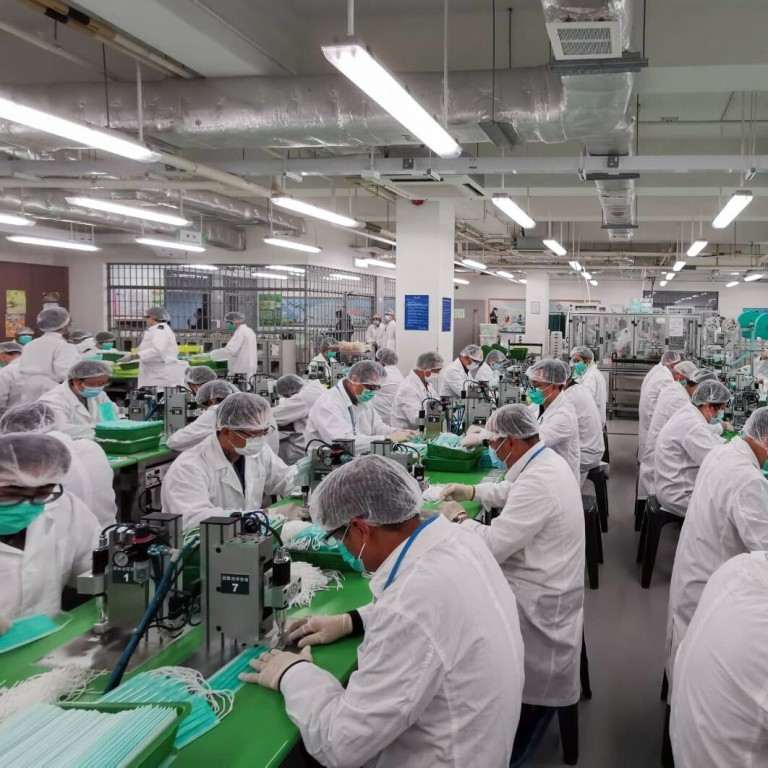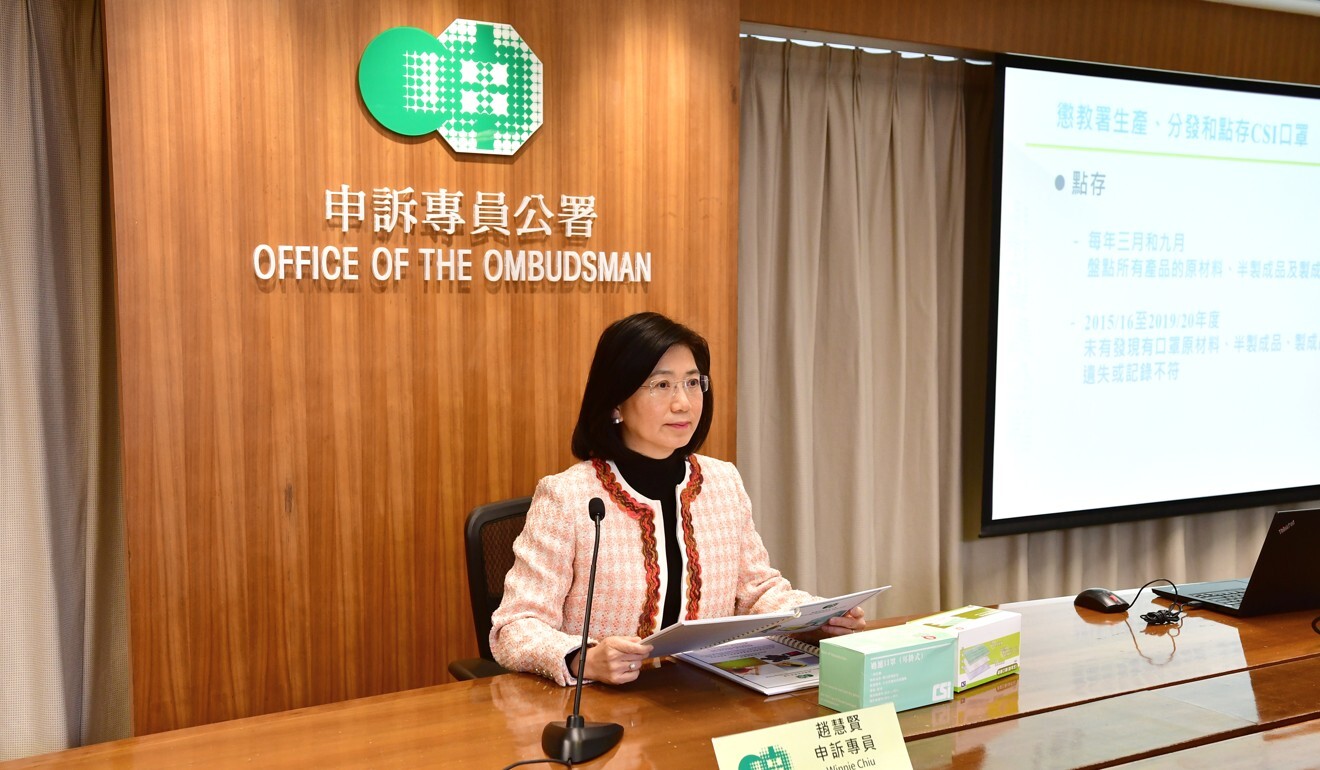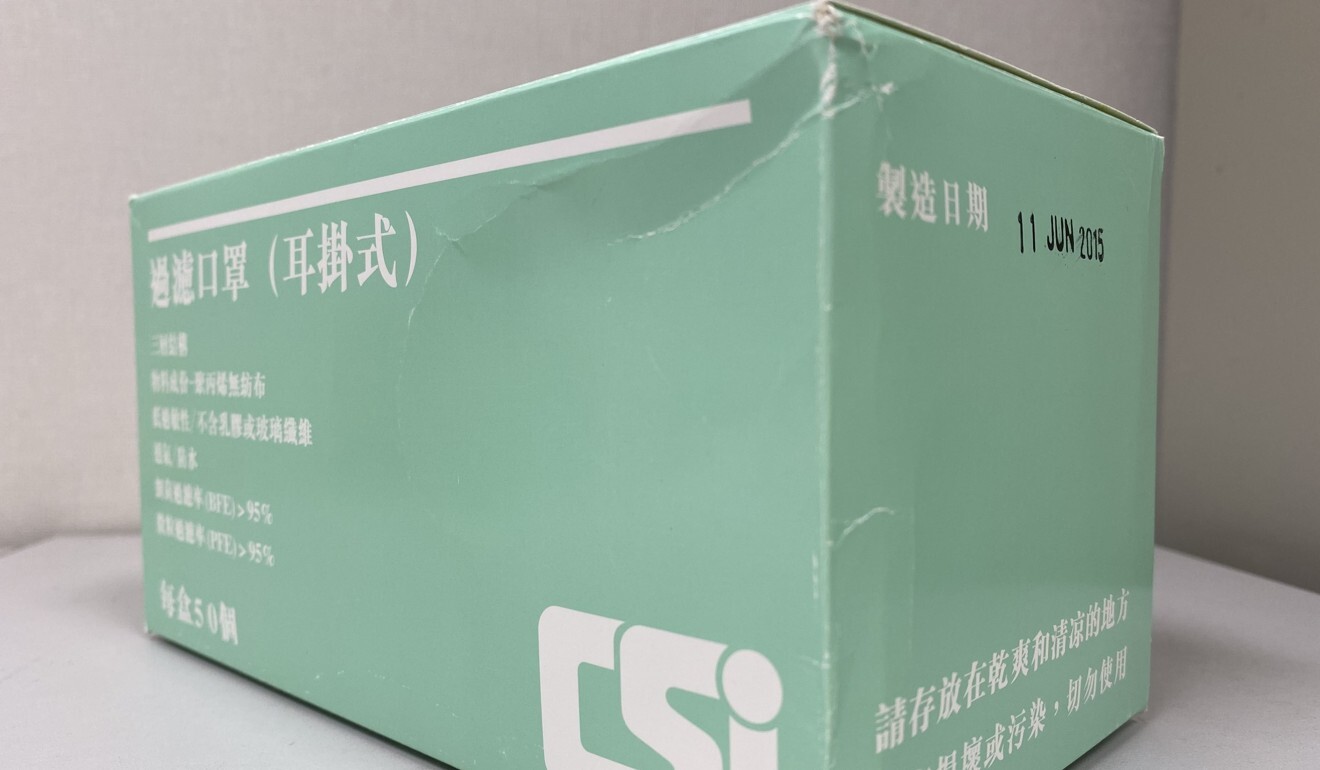
Coronavirus: Hong Kong’s ombudsman calls for new guidelines on distribution and disposal of government-made face masks
- Investigation started after claims that some expired government-made coverings were being sold in city’s markets
- Findings reveal seven government departments all have different methods for disposal of old masks
Hong Kong’s ombudsman has called for guidelines on the distribution and disposal of government-made face masks to minimise the risk of them being resold for profit, after an investigation concluded expired coverings had been put on sale locally.
The watchdog looked at how seven departments, such as the Food and Environmental Hygiene Department, and the Customs and Excise Department, distributed the prisoner-made masks for government internal use.
But the investigation did not cover the police force, which drew public attention for receiving the most of the so-called CSI masks at the height of the outbreak.
Ombudsman Winnie Chiu Wai-yin, formerly the city’s first female deputy police commissioner before taking on her current post in April last year, said in releasing the report on Thursday there was a “lack of consistency” among departments on both the distribution and disposal of expired masks.

Some departments put masks in the offices for staff to take as they wished, while in other workplaces, civil servants needed to request a mask.
On the disposal of expired masks, Chiu said: “The current government’s store and procurement regulations do not regulate the disposal of expired masks. We found that various departments handle expired masks differently.”
For example, the office found that one of the seven departments would ask staff to destroy all the expired masks, while another department kept them for contingency use.
The watchdog had sent its staff to check if the CSI masks were on sale at pharmacies in Sham Shui Po, but could not find any.
It quoted the customs department in saying it had conducted 38,000 inspections at stores across the city from January to October. Only one pharmacy was found to have sold CSI masks.
“The masks seized by the [customs department] were probably CSI masks, which should have been discarded,” the watchdog said in its report.
Coronavirus face masks that end up in the sea will take 450 years to degrade
The government told the Legislative Council in August that police received 3.47 million CSI masks from January to July, more than the 3.14 million coverings the Department of Health received.
Without commenting directly on the issue, the ombudsman said no loopholes were found in the overall arrangement in distributing CSI masks to different departments.
Chiu launched the investigation after revelations in February, at the onset of the coronavirus outbreak, that the supply of CSI masks was depleting quickly. There were also complaints that CSI masks had been available in pharmacies, when they were not supposed to be resold for profit.
In response, the Government Logistics Department said it would follow up on the recommendations from the ombudsman.

Meanwhile, the ombudsman also released a report saying the Joint Offices for Investigation of Water Seepage Complaints had taken too long in handling complaints.
The office is tasked to look into cases such as leakage in drainage pipes at residential estates.
The ombudsman found that the office received 34,055 complaints last year, and there were 13,889 cases brought forward from 2018. However, the office only managed to finish looking into 30,910 complaints last year, leading to a huge backlog.
Among the cases handled last year, only 64 per cent were completed within 90 days.
The watchdog has urged the office, composed of staff from both the Buildings Department and the Food and Environmental Hygiene Department, to come up with strategies to clear backlog faster.

